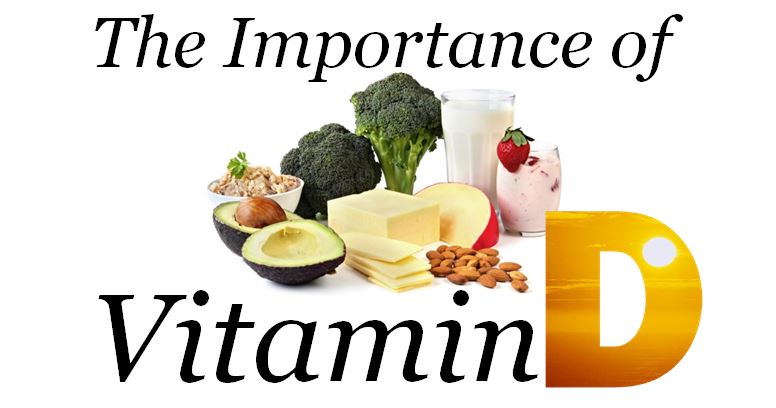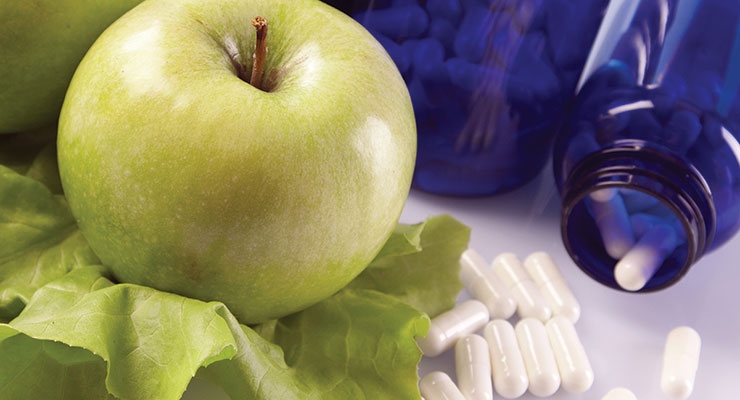Vitamin D is a vital nutrient that plays a significant role in supporting immune function and maintaining thyroid health. From regulating immune responses to aiding in the production of antimicrobial peptides, this essential vitamin is crucial for our overall well-being. While sunlight is the primary source of vitamin D, incorporating foods rich in this nutrient into our diet can provide additional support. In this article, we will explore five helpful pieces of information about foods rich in vitamin D and their benefits for immune function and thyroid health.
Welcome to my youtube channel! I'm John, and in this series, we'll explore the incredible world of foods rich in vitamin D. Whether you're looking to support your immune function or improve your thyroid health, vitamin D plays a vital role. Join me as we uncover the top five foods packed with this essential nutrient, learn about their benefits, and discover delicious recipes and tips to incorporate them into your diet. Together, let's nourish our bodies and enhance our well-being with the power of vitamin D. So, let's dive in and start this incredible journey to a healthier, happier you!
1, Importance of Vitamin D.
Vitamin D indeed plays a significant role in maintaining overall health and has multiple functions within the body. While its importance extends beyond just the immune system and thyroid function, I'll focus on these two aspects as you mentioned.
Immune System Support:
Vitamin D is known to modulate and enhance the immune response. It plays a crucial role in both the innate and adaptive immune systems. Adequate levels of vitamin D help regulate the immune system's response to pathogens, reducing the risk of infections and promoting immune balance.
a. Regulation of Immune Responses: Vitamin D helps regulate the activity of various immune cells, such as T cells, B cells, and macrophages. It promotes the differentiation and maturation of immune cells, enabling a well-coordinated immune response.
b. Reduction of Inflammation: Vitamin D has anti-inflammatory properties and helps regulate the production of pro-inflammatory cytokines. By modulating the immune response, it can reduce excessive inflammation, which is associated with chronic inflammatory conditions.
c. Antimicrobial Peptide Production: Vitamin D supports the production of antimicrobial peptides, which are natural substances that help fight against bacterial, viral, and fungal infections. These peptides contribute to the innate immune system's defense mechanisms.
Thyroid Function:
Vitamin D also plays a role in supporting thyroid health and the conversion of thyroid hormones.
a. Conversion of Thyroid Hormones: Vitamin D helps convert the inactive form of thyroid hormone (T4) into the active form (T3) within the body. This conversion is essential for maintaining proper thyroid function, as T3 is the hormone responsible for regulating metabolism and energy production.
b. Overall Thyroid Health: Vitamin D receptors are present in the thyroid gland, indicating its importance in thyroid function. Adequate levels of vitamin D may help support optimal thyroid function and prevent deficiencies that could lead to thyroid disorders.
It's worth noting that while vitamin D is important for immune system and thyroid function, it also has other roles in the body. For example, it aids in calcium absorption and bone health, contributes to muscle function, and plays a role in cardiovascular health. It is obtained from sunlight exposure, certain foods, and supplements. However, it's important to consult with a healthcare professional to determine the appropriate levels of vitamin D intake and whether supplementation is necessary based on individual circumstances.
2, Natural Food Sources.
natural food sources that are rich in vitamin D. Here are some additional details about these food sources:
a. Fatty Fish: Fatty fish are indeed excellent sources of vitamin D. For example, a 3.5-ounce (100-gram) serving of cooked salmon can provide around 400-600 IU (International Units) of vitamin D, depending on the specific type of salmon. Other fatty fish like trout, mackerel, and sardines also provide substantial amounts of vitamin D.
b. Cod Liver Oil: Cod liver oil is derived from the liver of codfish and is known for being a concentrated source of vitamin D. It is available in liquid or capsule form and is often used as a supplement. A single teaspoon (5 ml) of cod liver oil can contain around 400-1,000 IU of vitamin D, depending on the brand and processing method.
c. Fortified Foods: Fortified foods are those that have been supplemented with specific nutrients, including vitamin D. Milk, yogurt, orange juice, and breakfast cereals are commonly fortified with vitamin D. The amount of vitamin D can vary depending on the brand and specific product, so it's important to check the labels for the exact content.
d. Egg Yolks: While the amount of vitamin D in egg yolks is not as high compared to other sources, they still contribute to your vitamin D intake. One large egg yolk provides approximately 37 IU of vitamin D. Keep in mind that the vitamin D content can vary based on the chicken's diet and exposure to sunlight.
e. Mushrooms: Certain types of mushrooms have the ability to produce vitamin D when exposed to sunlight or artificial UV light. This is because they contain a compound called ergosterol, which can be converted into vitamin D upon exposure to UV light. Shiitake and maitake mushrooms are two varieties that are known to synthesize vitamin D. The exact vitamin D content can vary depending on the specific type of mushroom and the growing conditions.
It's important to note that the vitamin D content in foods can vary, and factors such as cooking methods, processing, and storage can affect the levels. If you're concerned about your vitamin D levels or have specific dietary requirements, consulting a healthcare professional or a registered dietitian can provide personalized advice.
3, Daily Recommended Intake.
daily intake of vitamin D can vary based on several factors. Here are some general guidelines for vitamin D intake:
Recommended Daily Intake (RDI): The Recommended Dietary Allowance (RDA) for vitamin D varies depending on age, sex, and life stage. The RDA is the average daily intake that is sufficient to meet the nutrient requirements of most healthy individuals. The RDA for vitamin D, as per the U.S. Dietary Reference Intakes (DRI), is as follows:
Infants (0-12 months): 400-1,000 IU
Children (1-18 years): 600-1,000 IU
Adults (19-70 years): 600-800 IU
Adults (71 years and older): 800-1,000 IU
Pregnant and lactating women: 600-800 IU
Higher Intake Recommendations: Some experts suggest that higher doses of vitamin D may be necessary for certain populations or individuals with specific conditions. For example, individuals with limited sun exposure, darker skin pigmentation, malabsorption issues, or certain medical conditions may require higher vitamin D intake. In such cases, healthcare professionals may recommend higher doses, often through supplementation, to meet the individual's needs.
Upper Limit: The tolerable upper intake level (UL) for vitamin D is the maximum daily intake unlikely to cause adverse effects in almost all individuals. For adults and children aged 9 years and older, the UL for vitamin D is generally set at 4,000 IU per day. It's important not to exceed the UL unless under medical supervision, as excessively high doses of vitamin D can be harmful.
It's important to note that individual requirements for vitamin D may vary based on factors such as overall health, sun exposure, geographic location, and specific medical conditions. Therefore, consulting with a healthcare professional or a registered dietitian is recommended to determine the appropriate vitamin D intake for your specific needs. They can evaluate your individual circumstances and provide personalized recommendations for maintaining optimal vitamin D levels.
4, Sunlight Exposure.
Sunlight exposure is indeed a natural and important source of vitamin D synthesis in the body. Here are some key points to consider regarding sunlight exposure and vitamin D production:
Sunlight and Vitamin D Synthesis: When your skin is exposed to UVB rays from sunlight, a chemical reaction occurs in your skin, converting a substance called 7-dehydrocholesterol into previtamin D3. Previtamin D3 then undergoes a process of conversion in the body to become active vitamin D3, which is the biologically active form.
Factors Affecting Vitamin D Production:
a. Geographical Location: The ability to produce vitamin D from sunlight varies depending on your location. People living at higher latitudes, especially during winter months, may have limited sunlight exposure and reduced vitamin D synthesis.
b. Season and Time of Day: The intensity of UVB rays and the angle at which they reach the Earth's surface are higher during the summer months and midday. Therefore, the time of year and the time of day can affect the amount of vitamin D produced.
c. Skin Type: Melanin, the pigment responsible for skin color, acts as a natural sunscreen and reduces the skin's ability to produce vitamin D. People with darker skin typically require more sunlight exposure to produce sufficient amounts of vitamin D compared to those with lighter skin.
d. Sunscreen Use: While it's important to protect your skin from harmful UV radiation, sunscreen with a high sun protection factor (SPF) can limit the production of vitamin D. Applying sunscreen with SPF 15 or higher may significantly reduce vitamin D synthesis. However, it's crucial to balance sun protection with adequate vitamin D production.
Recommended Sunlight Exposure:
a. Optimal exposure time: The recommended sunlight exposure duration to synthesize vitamin D can vary depending on factors such as skin type, location, and time of day. As a general guideline, exposing your face, arms, and legs to direct sunlight for around 10-30 minutes, a few times per week, during midday can help stimulate vitamin D production. The exact time needed can vary based on individual factors, so it's important to monitor your own response and consult with a healthcare professional if you have specific concerns or needs.
Balancing Sunlight Exposure and Protection: It's crucial to balance the benefits of sunlight exposure for vitamin D synthesis with protecting your skin from excessive UV radiation. Here are some recommendations:
a. Schedule outdoor activities during non-peak sun hours, such as early morning or late afternoon.
b. Wear protective clothing, such as wide-brimmed hats, long sleeves, and pants, to minimize direct exposure.
c. Use sunscreen with adequate SPF on areas of the body not covered by clothing, especially during prolonged sun exposure or when the risk of sunburn is high.
d. If you have concerns about vitamin D deficiency or have limited sunlight exposure due to specific circumstances, consult with a healthcare professional who can assess your situation and recommend appropriate vitamin D supplementation if necessary.
Remember, finding the right balance between sunlight exposure and protection is essential for both vitamin D synthesis and skin health. Individual needs may vary, so it's always a good idea to consult with a healthcare professional to determine the best approach for your specific circumstances.
5, Supplementation Considerations.
In situations where it's challenging to meet vitamin D needs through diet and sunlight exposure alone, vitamin D supplementation can be a viable option. Here are some important considerations regarding vitamin D supplementation:
Consultation with a Healthcare Professional: It's crucial to consult with a healthcare professional before starting any supplementation regimen, including vitamin D. They can assess your individual needs, evaluate your health status, and determine whether vitamin D supplementation is necessary for you.
Determining the Appropriate Dosage: The appropriate dosage of vitamin D supplementation can vary depending on factors such as age, overall health, existing medical conditions, and current vitamin D levels. A healthcare professional can recommend the right dosage based on your specific needs.
Monitoring Vitamin D Levels: Periodic monitoring of your vitamin D levels is important when you are taking vitamin D supplements. This allows your healthcare professional to assess the effectiveness of supplementation and make any necessary adjustments to the dosage.
Types of Vitamin D Supplements: Vitamin D supplements are available in various forms, including vitamin D2 (ergocalciferol) and vitamin D3 (cholecalciferol). Vitamin D3 is considered the more bioactive form and is commonly recommended for supplementation.
Quality and Safety: When selecting a vitamin D supplement, it's important to choose a reputable brand to ensure quality and safety. Look for products that have been third-party tested and certified.
Other Nutrients and Medications: Inform your healthcare professional about any other supplements or medications you are taking, as they may interact with vitamin D supplements. They can provide guidance on potential interactions and help you avoid any adverse effects.
Individualized Approach: Keep in mind that vitamin D supplementation should be personalized to your specific needs. Dosage recommendations can vary based on factors such as existing deficiencies, age, and medical conditions. Your healthcare professional will consider these factors to determine the appropriate dosage and duration of supplementation for you.
Remember, while vitamin D supplementation can be beneficial, it's important to work closely with a healthcare professional to ensure you are taking the right dosage and to monitor your vitamin D levels effectively. They can provide personalized guidance based on your individual circumstances and help you maintain optimal vitamin D status.
And that brings us to the end of today's video on foods rich in vitamin D. I hope you found this information helpful and informative. Remember, incorporating these vitamin D-rich foods into your diet can have a positive impact on your immune function and thyroid health. Don't forget to subscribe to my youtube channel for more exciting content on nutrition, health, and well-being. If you have any questions or suggestions, please leave them in the comments below. Thank you for watching, and I'll see you in the next video. Stay healthy and stay nourished!
In conclusion, ensuring an adequate intake of vitamin D is essential for supporting immune function and thyroid health. By incorporating foods such as fatty fish, cod liver oil, fortified foods, egg yolks, and mushrooms into our diet, we can naturally boost our vitamin D levels. Additionally, balancing sunlight exposure with sun protection measures can contribute to vitamin D synthesis in our bodies. However, it's important to remember that vitamin D is just one aspect of maintaining overall health. A well-rounded diet, regular exercise, stress management, and sufficient sleep all play crucial roles in supporting our immune system and thyroid function. Consulting with a healthcare professional can provide personalized guidance on meeting specific vitamin D needs and overall health goals. With these strategies in place, we can strive for optimal well-being and support our bodies in staying healthy and resilient.





Comments
Post a Comment